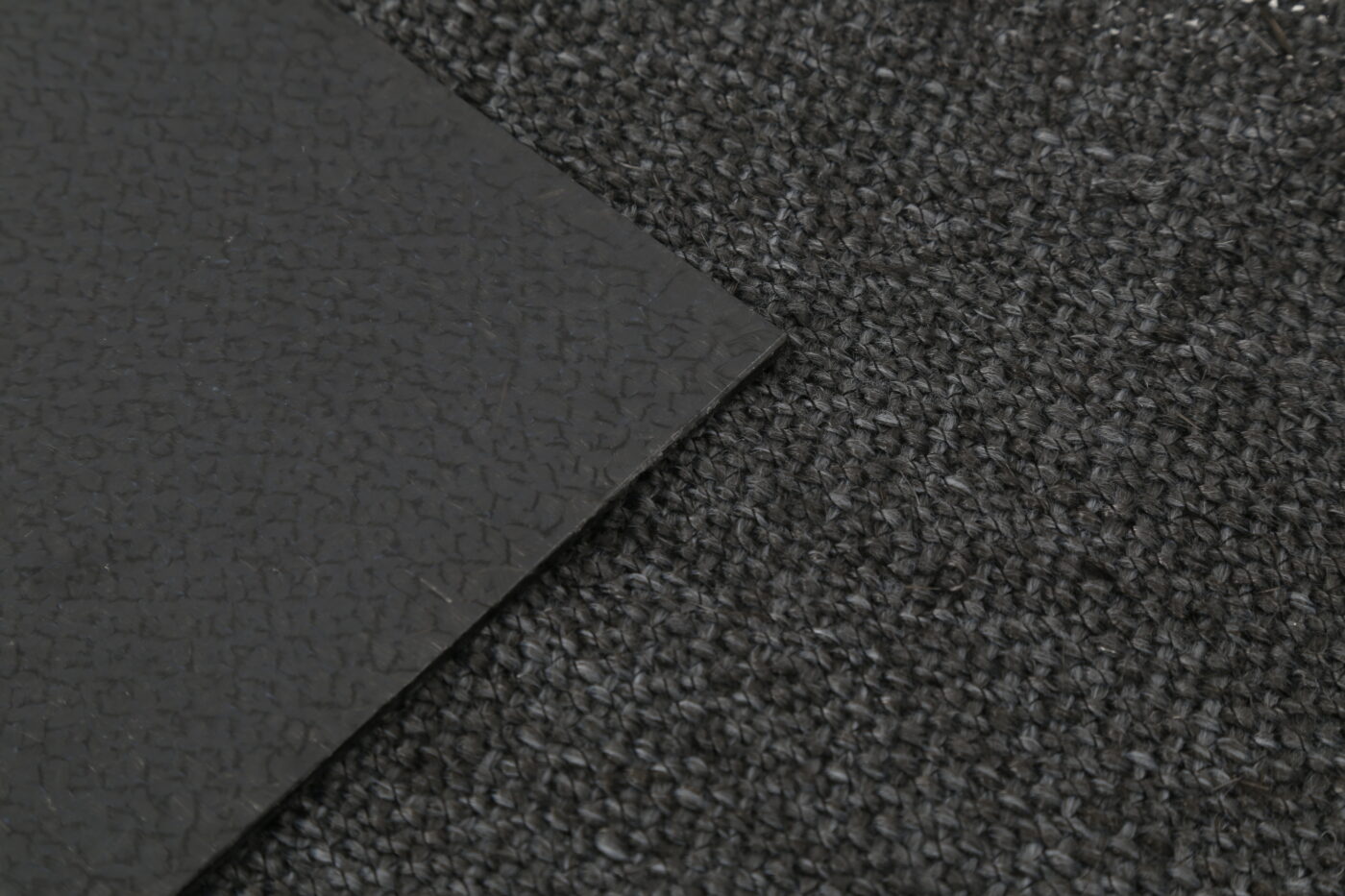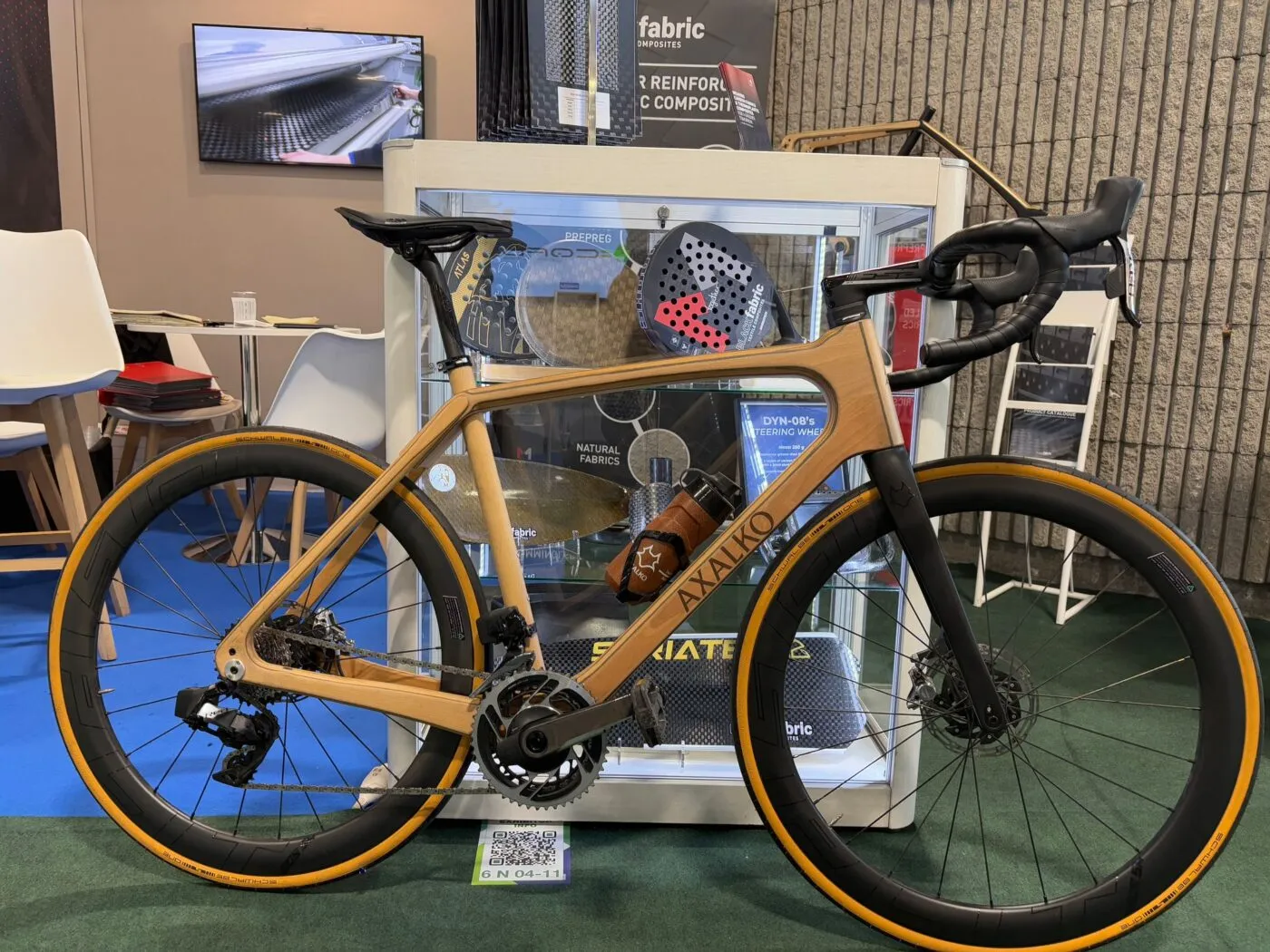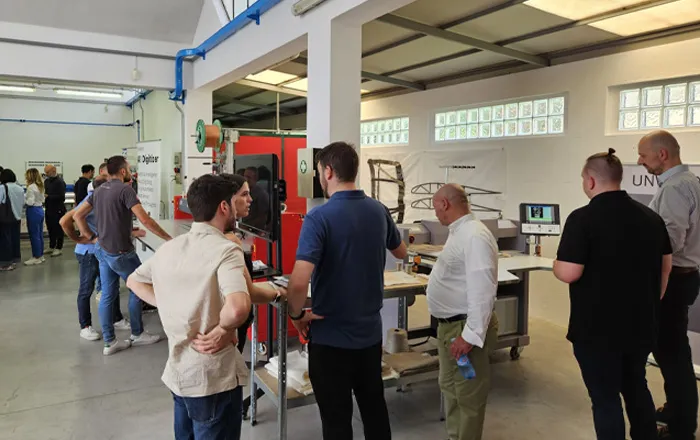Mixing Polyamide 6 and Fiberglass: Rapid Consolidation for Complex Geometries
Hybrid Fabrics with Integrated Thermoplastic Matrix
Blackfabric presents in its catalog a range of thermoplastic hybrid fabrics with PA6 matrix integrated into the yarn along with fiberglass. These fabrics offer a practical and flexible solution for the manufacture of thermoplastic composites, distinguishing themselves from alternatives based on thermoset resins and with the distinct advantages of commingled fabrics.
Unprecedented Storage and Adaptability
One of the most outstanding features of Blackfabric’s hybrid fabrics is the integration of the PA6 matrix directly into the commingled yarn. Being a thermoplastic polymer, there is no need for refrigeration during storage, allowing the material to be stored for prolonged periods without any issues and without an expiration date. Additionally, the optimal mix between fibers in the yarn itself ensures perfect impregnation of the fiberglass reinforcement.
The extraordinary drapability of the hybrid fabric allows it to adapt perfectly to contours and complex geometries, facilitating its use in a wide variety of industrial applications.
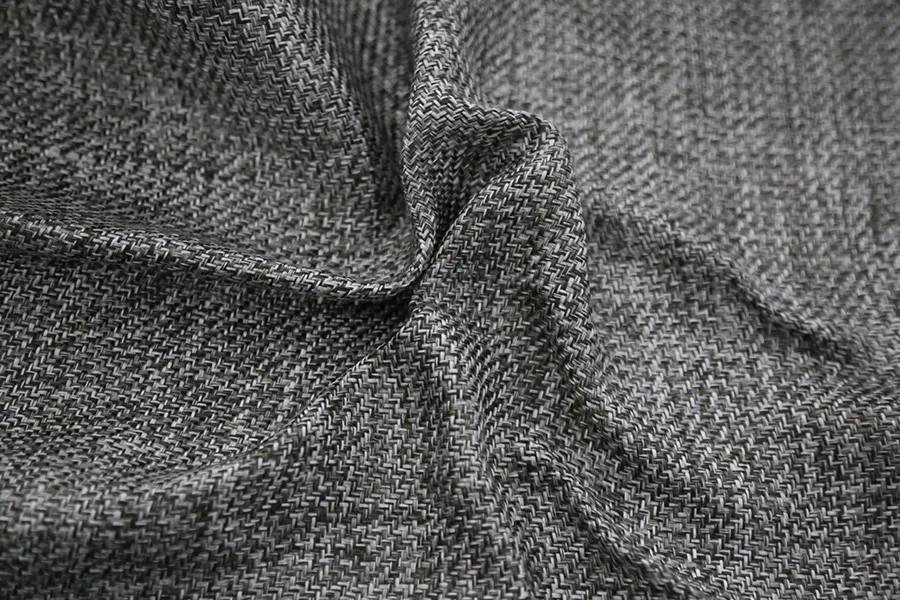
B24-001 Hybrid Fabric with Great Drapability
In particular, the automotive industry has integrated these fabrics in recent years due to their ability to meet the high production rates required. Notably, the standard weight of this fabric is 520 g/m², including the matrix, ensuring an optimal weight-to-strength ratio. However, Blackfabric’s fabrics can always be adjusted to the specific needs of each project.
Efficient and High-Quality Thermoforming Process
The consolidation process of Blackfabric’s fabrics is simple and effective. By melting the PA6 above its melting temperature (250°C) and applying mold pressure, the matrix flows and completely impregnates the fiberglass reinforcement. This thermoforming method ensures a uniform distribution of the thermoplastic matrix, resulting in a high-quality composite with excellent mechanical performance.
Thermoforming process video
Once thermoformed, the consolidated piece presents a surface finish without porosities, eliminating the need for costly and laborious polishing or repair processes. Tests show that this fabric is ideal for the mass production of parts with relatively complex geometries.
Industrial Applications: Combining Polyamide 6 with Fiberglass
Fiberglass offers a great economic advantage compared to carbon fiber when it comes to parts with limited mechanical properties. For the matrix, Blackfabric selects Polyamide 6, a semi-crystalline technical plastic widely known in the industry with good mechanical properties. The choice of this matrix allows maintaining a cost-effective composite without sacrificing mechanical performance.
These fabrics thus present themselves as a good candidate in items related to automotive, aviation, and transportation, combining these low costs with the following features:
- Impact Resistance: Due to the greater elasticity of the matrix, the fabrics can be used for parts that need to absorb impacts or are more likely to receive them. Applications such as sports items or automotive parts can benefit from these properties.
- Corrosion Resistance: One of the most interesting properties of this glass-polyamide 6 combination is that it does not present corrosion, making it a perfect choice for boats or docks.
- Innovative Aesthetics: This fabric presents an appearance far from the classic 3K twill carbon. With black-colored polyamide 6, it presents a consolidated look with a unique appearance.
In particular, the fabrics with references B24-005 and B24-006 in the catalog are composed of especially flat yarns that provide a new aesthetic and good weight reduction, while the B24-001 reference is more classic, similar to 3K carbon, and presents greater density.
Blackfabric can adjust the parameters of its machinery to ensure that functionality and aesthetics are tailored to each specific project.
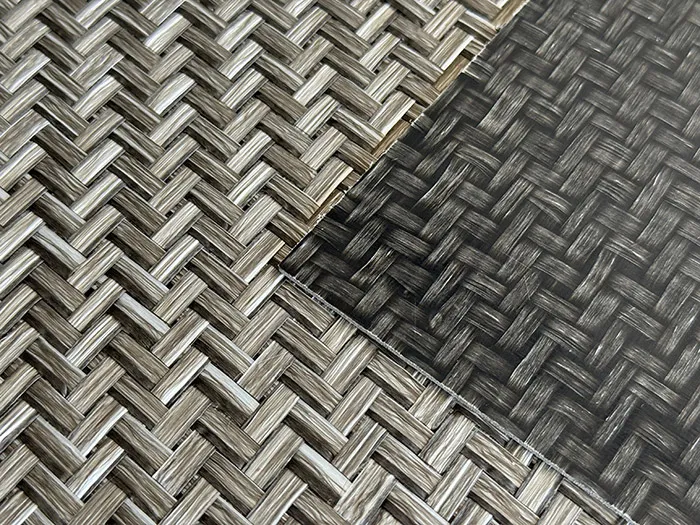
Ref B24-005: 2/2 Twill, 520 g/m²
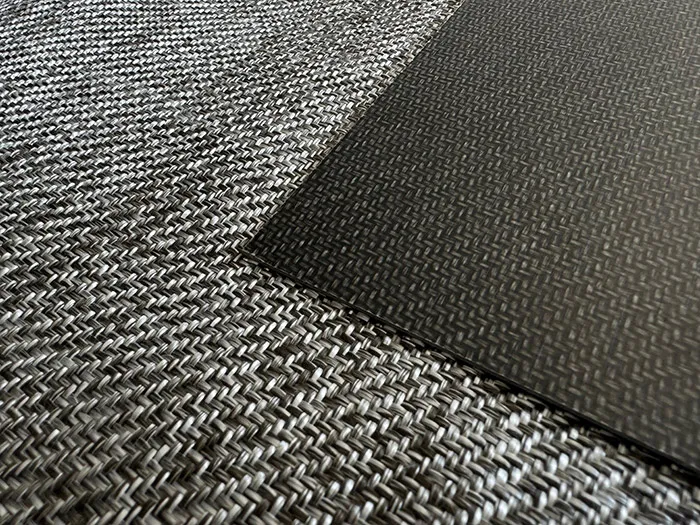
Ref B24-001: 2/2 Twill, 650 g/m²
Revolution in Sustainability and Recyclability
In addition to their ease of handling, Blackfabric’s hybrid fabrics stand out for their contribution to sustainability. At the end of their life cycle, the thermoplastic PA6 matrix can be remelted, allowing the separation and recovery of the fiberglass reinforcement in continuous fiber form.
Additionally, the matrix can also be recovered and revalued in other sectors, further increasing its sustainability potential. This process not only facilitates recycling but also significantly reduces environmental impact compared to thermoset resin-based solutions, which are often difficult to recycle (costly pyrolysis methods).
These fabrics are offered in rolls ready to be cut and consolidated, providing a practical and efficient solution for your production needs.
Continue discovering more about thermoplastic composites in the catalog.
